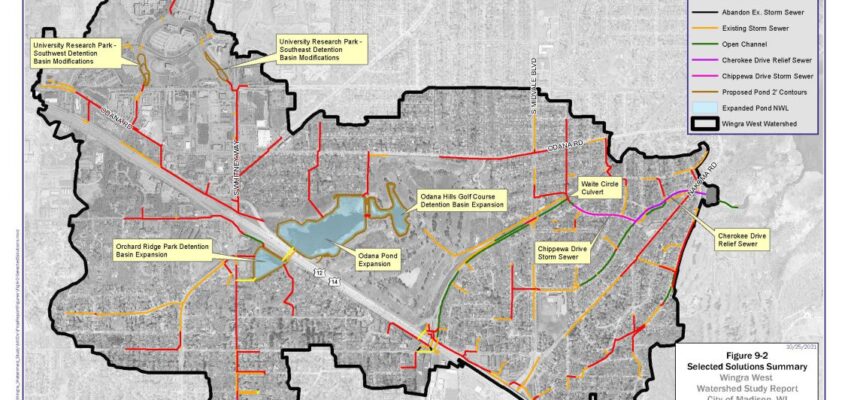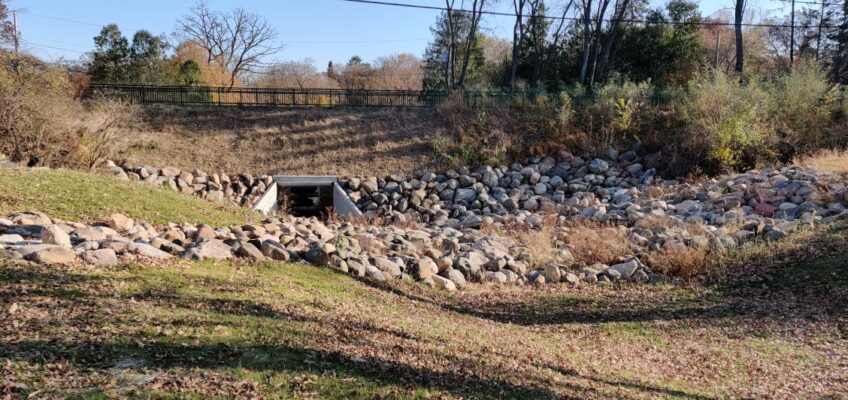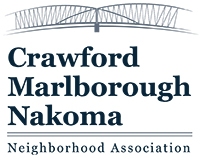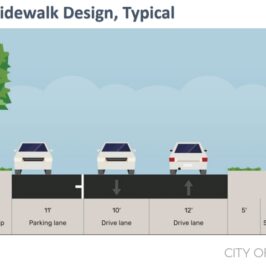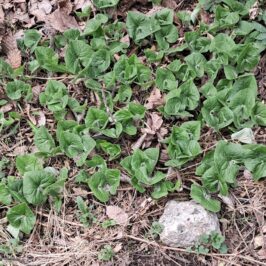Come find out about the West Wingra Watershed and the flooding issues that are common in the neighborhood. In 2022 the City of Madison published the “Wingra West Watershed Study” following many years of research and public involvement. The study developed a stormwater runoff model, which represents the existing drainage conditions and identified the areas of the watershed that are most likely to flood. The stormwater model is used to evaluate alternative mitigation methods and/or infrastructure improvements which can eliminate or reduce flooding impacts from large rain events. Phil Gaebler, a water resources engineer for the City of Madison, also gives tips homeowners can implement on their property to reduce flood risk and improve water quality. He will be available to answer questions following his talk.
Phil’s work focuses on improving Madison stormwater quality. His many interests include green infrastructure, flood mitigation and in creating spaces that can both treat stormwater and provide amenities to the community. He was the program manager for the Wingra West Watershed Study and is the project manager for the Wingra Proper Study. He has a bachelor’s degree in Agricultural Engineering from the University of Illinois and a Masters in Civil Engineering from the University of Wisconsin – Madison.
Following Phil’s talk we will have a brief business meeting to elect new CMNNA Board members
Join Zoom Meeting
https://us06web.zoom.us/j/86413581836?pwd=TURyek0xek1TLzFxQ0VlVERwYVM2Zz09
Meeting ID: 864 1358 1836
Passcode: 330096
Did you know that none of the work done by the Stormwater Utility is funded by the property tax? Instead, all City of Madison properties are charged a stormwater fee through the monthly Municipal Services Utility Bill. This fee is charged based on the size and amount of hard surface (impervious) surface on the property. The more hard surface, the more water runs off the surface and has to be managed. The fee is the only funding that is used to allow the City to build and maintain stormwater infrastructure, including storm sewers, greenways and stormwater basins. This monthly fee varies depending on residents’ yard size, but the average homeowner pays $11.31 per month.
Top 5 Ways You can Help Water Quality in Our Lakes The path toward clean lakes is a shared journey where we all have a role to play. If everyone takes small actions at home, we can create a big impact for our lakes, and countless other environmental causes. Here are five great ways to help the lakes:
1. Plant Native & Diverse Vegetation: Deep-rooted native plants and trees help absorb water and hold topsoil in place during rain events.
2. Create a rain garden: Not only will rain gardens capture stormwater runoff and beautify your property, they also provide biodiversity that helps butterflies and bees survive.
3. Redirect downspouts: This simple action allows you to redirect rainwater to your lawn or garden, while also reducing the amount of stormwater that goes to streets and directly into the lakes via storm sewers.
4. Install a rain barrel: By capturing rainwater from your roof, rain barrels reduce the amount of stormwater runoff that reaches the lakes.
5. Rake for leaf-free streets: Raking leaves from the street edge (three feet from the curb) and onto lawns will help fertilize the grass and reduce cyanobacteria (blue-green algae) blooms in our lakes.
To help the City prioritize different flood projects and studies, please report any flooding you’ve experienced at: www.cityofmadison.com/reportflooding
Many people already reported flooding they experienced, and we have some records of past flooding. This helped us to identify which watersheds we prioritized studying in 2019 when the program began.
Project Manager: Phil Gaebler, Pgaebler@cityofmadison.com
Public Information Officer: Hannah Mohelnitzky, hmohelnitzky@cityofmadison.com
Project Webpage: www.cityofmadison.com/WingraWestWatershed

